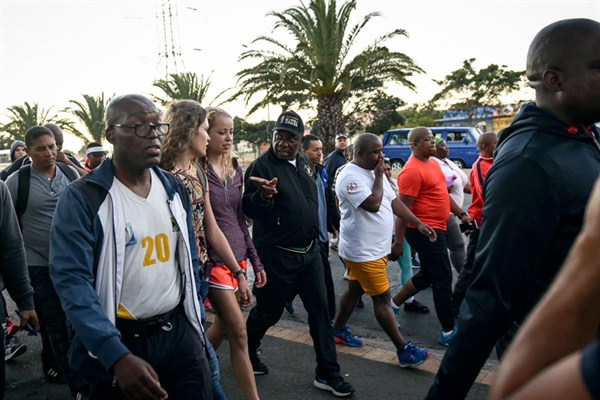When Jacob Zuma formally resigned as South Africa’s president last week, some commentators used his overdue but less than gracious exit as an opportunity to reach for the famous words of U.S. President Gerald Ford, who in 1974 declared, in the wake of Richard Nixon’s resignation, that “our long national nightmare is over.” Those words capture both the widespread sense of disgust in South Africa at the malignant nature of the Zuma presidency, and the hope for a new beginning and a fresh start under Cyril Ramaphosa.
The new president has chosen his words carefully so far, anxious not to humiliate Zuma nor fan any flames of indignation among his supporters. But since becoming the leader of the African National Congress in December, Ramaphosa has consistently denounced “state capture,” a defining feature of the corrupt Zuma years, when state institutions became the playthings of private interests. In his first State of the Nation address on Feb. 16, Ramaphosa told his parliamentary audience he was “determined to build a society defined by decency and integrity that does not tolerate the plunder of public resources.” These statements send the unmistakable signal that Ramaphosa is seeking to draw a line under a sordid and destructive decade when the interests of South Africans—and certainly the poorest among them—appeared to be of marginal importance to the leadership.
If the “Cyril Spring” is to be built into something much more permanent, however, Ramaphosa will have to overcome myriad difficulties. Three specific areas warrant his close attention and will ultimately determine the fate of his leadership: the poisonous legacy of Zuma; the need to put his own clear stamp on policy; and, perhaps most problematic of all, the challenge of confronting the structural weaknesses of the ANC itself.

